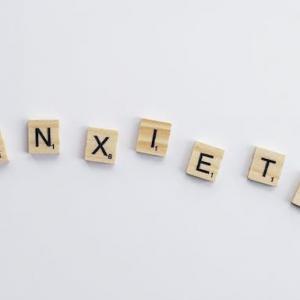
Introduction
Managing stress and anxiety is essential for maintaining overall well-being. While traditional methods such as therapy and medication are effective, holistic approaches offer a more comprehensive and natural way to address these challenges. Holistic approaches focus on treating the whole person - mind, body, and spirit. In this guide, we will explore various holistic approaches to managing stress and anxiety and provide insights into their benefits.
Mindfulness and Meditation
Mindfulness and meditation practices are powerful tools for stress and anxiety management. By focusing on the present moment and cultivating a non-judgmental awareness of thoughts and emotions, mindfulness helps individuals reduce stress and enhance overall well-being. Meditation techniques, such as deep breathing exercises and guided imagery, promote relaxation, reduce the physiological effects of stress, and improve mental clarity. Regular practice of mindfulness and meditation can help individuals develop resilience and cope better with stressors.Exercise and Physical Activity
Engaging in regular physical activity is not only beneficial for physical health but also plays a significant role in managing stress and anxiety. Exercise stimulates the release of endorphins, which are natural mood-lifters. It reduces the levels of stress hormones, such as cortisol, and promotes a sense of well-being. Whether it's going for a walk, practicing yoga, or participating in a sport, finding an enjoyable form of exercise can provide a healthy outlet for stress and anxiety, improve sleep quality, and boost overall mood.
Healthy Diet and Nutrition
Maintaining a healthy diet and proper nutrition is crucial for managing stress and anxiety. Certain foods, such as those rich in omega-3 fatty acids (e.g., fatty fish, walnuts), antioxidants (e.g., berries, dark chocolate), and magnesium (e.g., leafy greens, almonds), have been shown to reduce stress and promote relaxation. Avoiding or minimizing the consumption of caffeine, alcohol, and processed foods can also help stabilize mood and energy levels. A well-balanced diet that includes whole grains, lean proteins, fruits, and vegetables provides the necessary nutrients for optimal brain function and emotional well-being.
Sleep Hygiene
Getting adequate sleep is vital for managing stress and anxiety. Poor sleep can exacerbate stress levels and contribute to increased anxiety. Establishing a consistent sleep routine, creating a relaxing sleep environment, and practicing good sleep hygiene habits can improve sleep quality. This includes avoiding electronic devices before bed, keeping the bedroom dark and quiet, and engaging in relaxation techniques, such as reading or taking a warm bath, to unwind before sleep. Prioritizing sleep and ensuring a sufficient amount of restful sleep can significantly reduce stress and anxiety.Herbal Remedies and Supplements
Certain herbal remedies and supplements have been used for centuries to manage stress and anxiety. Herbs such as chamomile, lavender, valerian root, and passionflower have calming properties and can promote relaxation. Supplements like omega-3 fatty acids, B vitamins, and magnesium have also been found to support a healthy nervous system and reduce symptoms of anxiety. However, it is important to consult with a healthcare professional before incorporating any herbal remedies or supplements into your routine to ensure safety and effectiveness.Alternative Therapies
Various alternative therapies can complement traditional approaches to managing stress and anxiety. Techniques such as acupuncture, acupressure, aromatherapy, and massage therapy have shown promise in reducing stress, promoting relaxation, and improving overall well-being. These therapies work by stimulating specific points on the body, using essential oils, or applying gentle pressure to release tension and restore balance. Incorporating such therapies into your self-care routine can provide additional support in managing stress and anxiety.Social Support and Connection
Building and maintaining strong social connections is essential for managing stress and anxiety. Sharing concerns and experiences with trusted friends, family members, or support groups can provide emotional support and perspective. Engaging in social activities and fostering meaningful relationships can help reduce feelings of isolation and promote a sense of belonging. Whether through joining clubs, volunteering, or participating in group activities, social support and connection play a vital role in managing stress and anxiety.Conclusion
Holistic approaches to managing stress and anxiety offer a comprehensive and natural way to promote overall well-being. By incorporating practices such as mindfulness and meditation, engaging in regular physical activity, maintaining a healthy diet, prioritizing sleep, utilizing herbal remedies and supplements, exploring alternative therapies, and fostering social support, individuals can effectively manage stress and anxiety. Remember, each person's journey is unique, so it's essential to find the combination of approaches that works best for you. Embrace a holistic mindset and take proactive steps towards managing stress and anxiety for a healthier and more balanced life.
Article
Be the first comment
Elite Article














